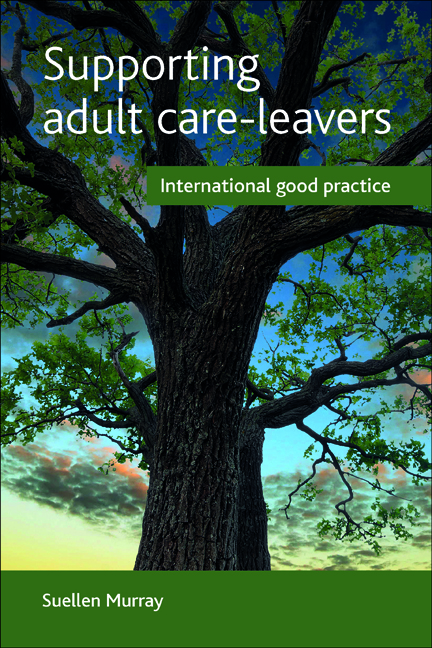Book contents
- Frontmatter
- Author biography
- Acknowledgements
- Contents
- List of abbreviations
- List of tables, figures and boxes
- One Introduction
- Two Care and its aftermath
- Three Public inquiries
- Four Apologies, memorials and other acknowledgements
- Five Reparation and redress
- Six Specialist support
- Seven Access to records and family reunification
- Eight Advocacy and consumer participation
- Nine Good practice in supporting adult care-leavers
- Notes and references
- Select bibliography
- Index
Six - Specialist support
Published online by Cambridge University Press: 01 September 2022
- Frontmatter
- Author biography
- Acknowledgements
- Contents
- List of abbreviations
- List of tables, figures and boxes
- One Introduction
- Two Care and its aftermath
- Three Public inquiries
- Four Apologies, memorials and other acknowledgements
- Five Reparation and redress
- Six Specialist support
- Seven Access to records and family reunification
- Eight Advocacy and consumer participation
- Nine Good practice in supporting adult care-leavers
- Notes and references
- Select bibliography
- Index
Summary
The scale of the atrocity is appalling. It happened in institutions respected by the community. The community is today bearing the cost of this treatment; in ruined lives and in expensive tertiary treatments, for example prisons and homeless and mental health services. The cost to the individual is almost unbearable to contemplate. (Caroline Carroll, adult care-leaver and advocate, 2014)
Caroline Carroll, President of the Alliance of Forgotten Australians, quoted above, highlights the scale of the abuse, the consequences for those worst affected and the need for support services. In this chapter, we consider the specialist support needs of adult care-leavers, and how attempts are made to meet these needs through the provision of services. In Chapter Two, key areas of support for adult care-leavers were identified, including: mental health; others areas such as education, employment and social engagement; and cultural reconnection. As we have seen in Chapter Five, these are sometimes provided as part of a redress package targeting individuals or groups or they are available universally to all adult care-leavers in a jurisdiction. These are programmes available to adult care-leavers at no cost, as a form of in-kind recognition of the harms experienced. There is also, of course, a range of specialist support that could be available for payment, or as part of wider support service systems that do not specifically target adult care-leavers, such as a community mental health clinic.
Specialist support as part of a redress programme or otherwise available to this group is what some adult care-leavers want most, rather than compensation in the form of cash payments, or as well as cash. In this way, funds are available to specifically address their needs. In addition, there are risks in handing over large sums of money. Overspending may be considered a person's choice as to how to use these funds, but there is also a duty of care to those for whom risky behaviours such as problematic drug and alcohol use could lead to overdose or injury through accidents. Cash payment by instalment is a way that these difficulties have been managed in some jurisdictions.
- Type
- Chapter
- Information
- Supporting Adult Care-LeaversInternational Good Practice, pp. 111 - 132Publisher: Bristol University PressPrint publication year: 2015

